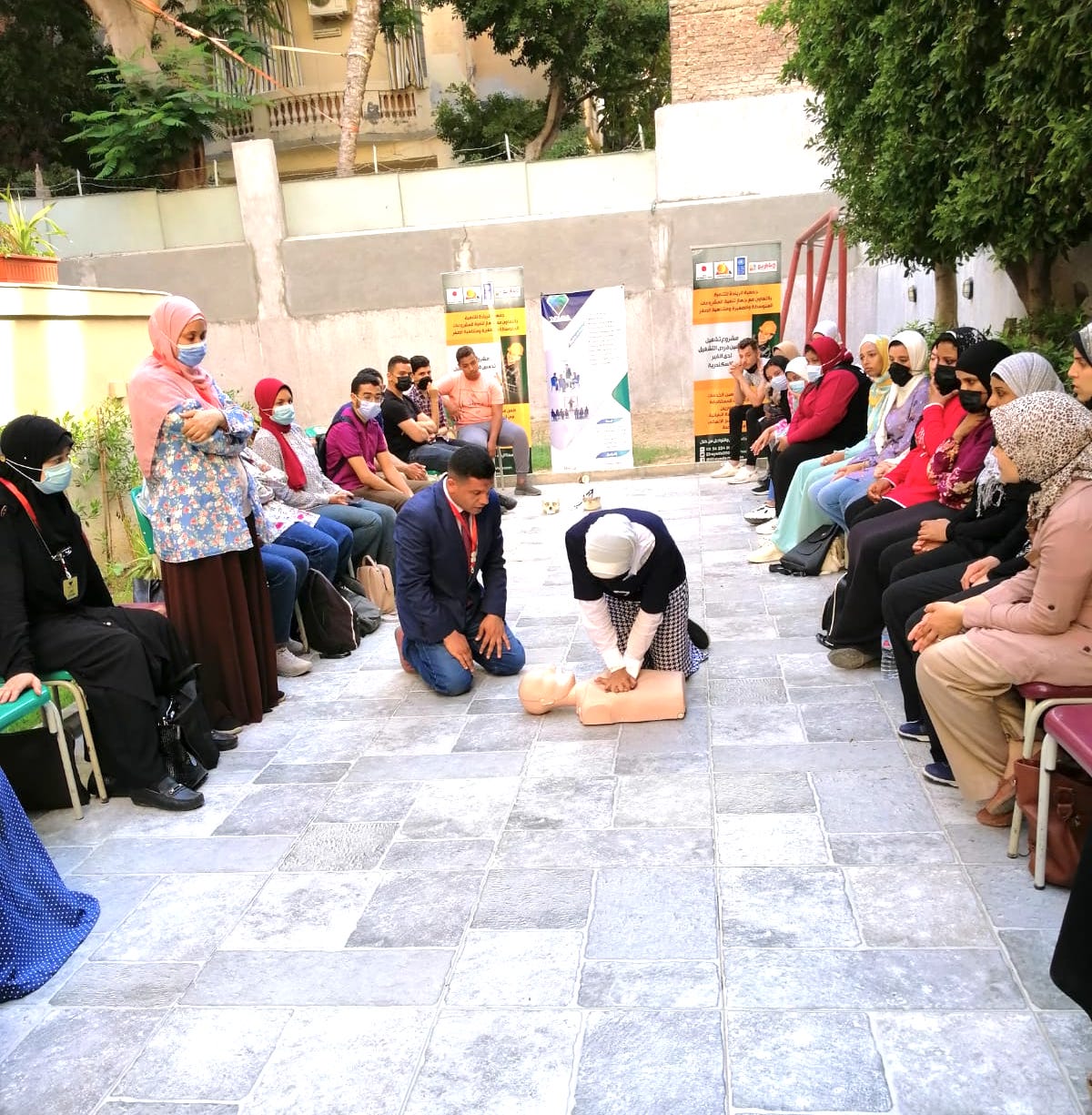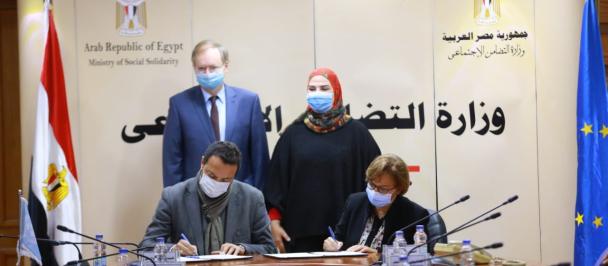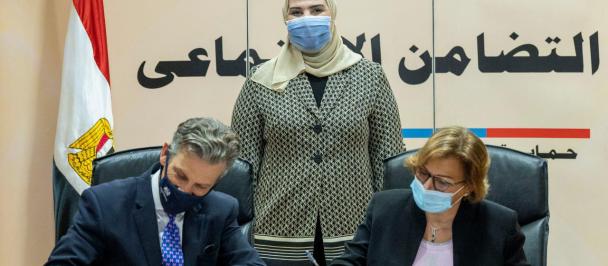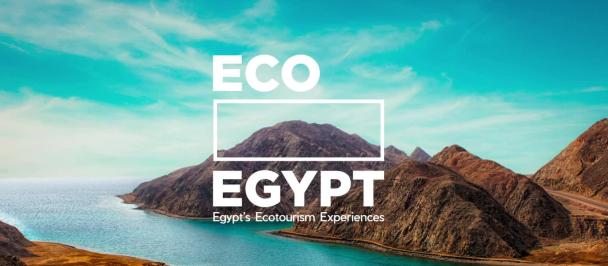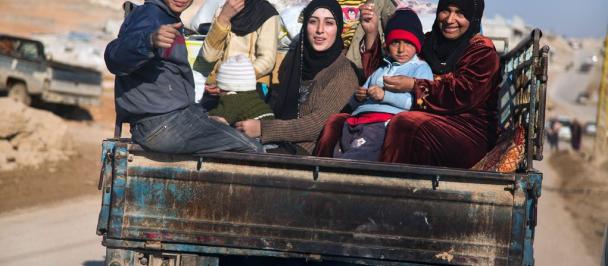One of the training sessions where the participants are receiving basic skills training. Photo by MSMEDA
The Micro, Small and Medium Enterprise Development Agency (MSMEDA), and the United Nations Development Programme (UNDP), held on 11August 2021, a field visit to an Implementing NGO, ‘Future Girls Association for Development’, responsible for carrying the project’s mandate of providing training sessions for improving and enhancing youth employability for young men and women in Giza governorate. The visit took place at the Association’s office at Omal Misr Company (OMC) in the 6th of October district, Giza governorate.
This visit was held within the framework of the ‘Innovative Solutions to Improve Livelihoods in Host Communities of Syrian Refugees’ project, signed in 2020, a partnership between MSMEDA and UNDP, and funded by the Government of Japan (GoJ). The project is implemented within the framework of Egypt’s Chapter under the Regional Refugee and Resilience Plan 2019-2020 in response to the Syria crisis (3RP).
This comes as part of the Government of Japan’s notable ongoing efforts with multiple UN agencies, including UNICEF, the World Food Programme (WFP), and the International Organization for Migration (IOM), towards the “Leaving No One Behind” commitment, through funding projects ―nearly $2.5 million―targeting the vulnerable communities such as migrants, refugees, women, and children, by providing capacity-building for healthcare services and fostering community engagement, in addition to nutrition support to the most vulnerable refugees such as women in pregnancy/lactation periods and their children, and delivering psycho-social support to vulnerable migrants.
This project aims to address the urgent needs of host communities through partnering with Civil Society Organizations (CSOs) and NGOs in Alexandria, Giza, and Qalyubia ―three governorates with the highest concentration of Syrian refugees―to foster social cohesion and stability, reduce poverty, and unemployment, and improve social services, in impoverished communities. It is worth noting that Egypt remains a destination and transit country for refugees and asylum-seekers, with over 259,292 registered refugees and asylum-seekers, and half of them are Syrians according to the latest UN Refugee Agency (UNHCR) data.
With the Government of Japan’s support, the project has thus far secured 62,437 workdays for 530 young men and women in five impacted host communities in these three governorates through the community development cash for work component. The project is currently working towards its wider vision of creating at least 100,000 workdays for 500 young men and women in 5 impacted host communities, which it aims to fulfill by the end of the year, signifying the end of the project
Eng. Medhat Massoud, Head of the Human and Community Development Central Sector within MSMEDA stated that the project is “designed to be implemented in partnership with CSOs and NGOs, in the three targeted governorates, and will produce short-term employment opportunities for 100,000 persons/day for the cash for work programmes and create 320 decent permanent job opportunities in training for employment programmes”. He also added that “the project and all programmes implemented and managed by MSMEDA are fully aligned with both the Sustainable Development Goals (SDGs) and the country’s strategy and its 2030 vision”.
The Association has partnered with OMC, a private-owned company specialized in managing and operating production lines in factories, that facilitates both technical and vocational training for beneficiaries, and hence their employment at well-established factories. To date, the Association has trained 90 beneficiaries on soft and life skills training, while 150 beneficiaries received training on smart digital meters, detergents, and disinfectants production lines sectors, and sewing and ready-made clothing industry sector, and 60 beneficiaries have secured employment, so far.
Sylvain Merlen, UNDP Egypt Deputy Resident Representative, asserted that “the skills provided through these projects are simple but targeted. They fit what employers need for the growing export-driven industries of Egypt and have resulted in a very good job placement rate. They also convinced trainees to invest time in building their skills for stable income and growth perspective.”
During the field visit, MSMEDA and UNDP officials met with multiple beneficiaries who secured employment, through the NGOs’ training programmes, at multinational companies and factories. Osman Tag El-Din, a young beneficiary currently employed at Henkel Factory, identified the programme’s strengths and opportunities by affirming that “working in a good environment and workplace adds to one’s skill set and broadens one’s horizons”. Mr. Tag El-Din continued, “I have gained a lot of experience and learned several new skills through this work opportunity that will indefinitely live with me in any future endeavors”. Mr. Tag El-Din was subject to the full training cycle specifically organized for beneficiaries that include the carefully planned basic skills training, as well as the vocational training.
Furthermore, visiting Smart Meters Factory, a ready-made garments factory, specialized in the production of surgical clothing and utilities, through which beneficiaries were provided employment, further accentuated the intricacies of the vocational training. Beneficiaries undergo five days of life-skills training followed by 20 days of extensive vocational training before proceeding with the actual manufacturing process.
Nevertheless, as seen from the above experiences of the graduates of the training programs, the ultimate goal is to facilitate the beneficiaries to transition into more sustainable employment following their graduation, which will benefit them in the long run, even when the project comes to an end.

 Locations
Locations